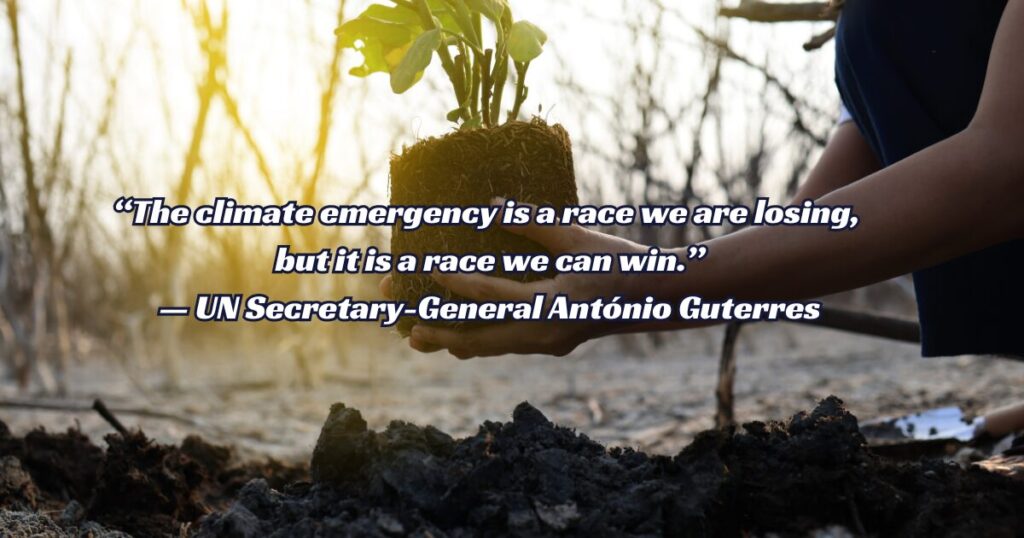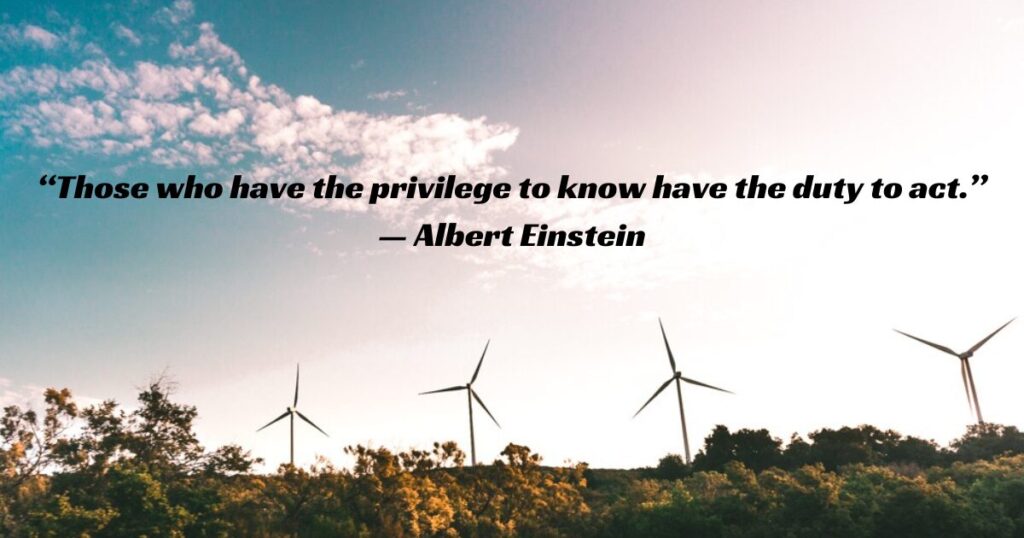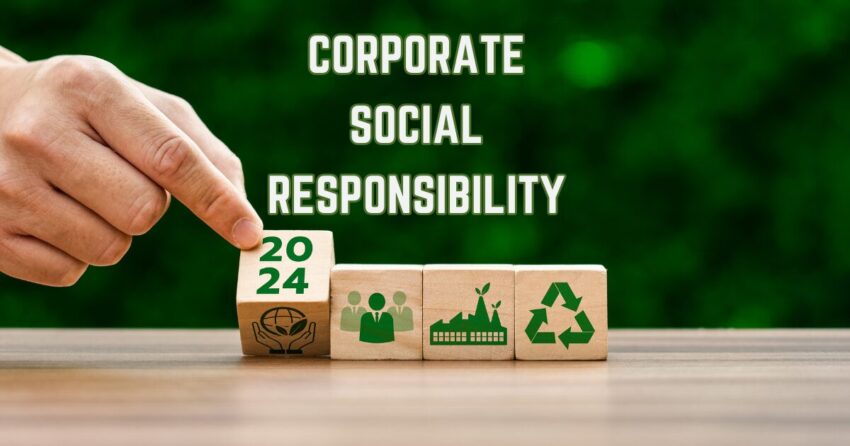In quantifiable terms, the impact of CSR (Corporate Social Responsibility) surpasses that of an individual in catalyzing positive changes across social, economic, and environmental spheres. Its impact on society is not only significant but also efficacious.
Imagine yourself living in a society indifferent to social and environmental concerns, despite your convictions. You can be the one acknowledging the need for shifting towards sustainable and eco-friendly ways of living. Still, the people around you might find it an over-exaggeration of conditions and a waste of time. This disconnection between individual values and societal norms can be disheartening, leading to a sense of isolation in your efforts towards sustainability.
But what if there was a way to align your professional pursuits with your commitment to sustainability? What if you could work for or establish a company dedicated to realizing sustainability goals?
When organisations ensure that their operations do not negatively impact society, their strategies benefit the economy, and their practices do not harm the environment, they embrace principles of Corporate Social Responsibility (CSR).
In a world heavily reliant on consumerism, the question arises: How can one build or join a company that embraces Corporate Social Responsibility (CSR) without compromising its sales or profits?
To understand, let’s delve into the strategies of how organizations can navigate the intersection of commerce and conscience.
1. The Challenges of Implementing CSR in Business
Before going conscious, be practical-Balancing Profitability and Social Responsibility
Before embracing conscious practices, businesses must be practical about balancing profitability and social responsibility.
Implementing CSR initiatives may strain profitability, especially for smaller businesses. Plan according to financial constraints and consider short-term and long-term impacts.
Ensure alignment with shareholders to avoid tensions over priorities. Navigate competitive pressures while maintaining market standing.
In essence, CSR efforts should not jeopardize financial viability. Maintaining this balance is essential for sustainability.
Build your reputation with integrity –Overcoming Consumer Skepticism
Consumers are becoming more cautious of greenwashing tactics, where companies exaggerate or make false claims about their environmental practices to appear socially responsible.
Furthermore, years of corporate scandals and ethical breaches have eroded consumer trust, making it difficult for companies to convince consumers of their genuine commitment to CSR.
Additionally, the abundance of CSR messaging from numerous companies can overwhelm consumers, leading to scepticism and cynicism regarding the authenticity of CSR efforts.
In navigating these challenges, companies should prioritize transparency and authenticity in their CSR initiatives to rebuild trust and foster genuine connections with consumers.
Be Aware of Laws and Regulations –Navigating Regulatory Compliance
The challenges of CSR implementation include varying regulations across industries and regions, evolving regulatory landscapes, enforcement gaps, and managing CSR standards in global supply chains. Despite these obstacles, navigating them successfully can lead to enhanced reputation, customer loyalty, and sustainability.
2. Strategies for Integrating CSR into Business Operations
Establishing clear CSR goals and objectives involves setting specific, measurable, achievable, and time-bound targets aligned with the company’s mission and values, ensuring consensus among stakeholders.
Engaging stakeholders and employees is essential; this includes involving key stakeholders in CSR planning, fostering open communication channels, and empowering employees to participate.
Implementing sustainable practices throughout the supply chain requires assessing environmental and social impacts, collaborating with suppliers for ethical sourcing, and implementing measures to reduce waste and energy consumption.
Transparency and accountability in reporting are crucial, achieved through robust monitoring systems, regular communication of CSR performance, and holding the company accountable through independent audits.
These concise strategies are vital for effective CSR implementation, ensuring alignment with company values and maximizing positive impacts.

3. Successful Implementation of CSR Initiatives-Examples
Environmental Conservation Efforts
IKEA has established itself as a sustainability leader in the furniture industry through initiatives like responsibly sourcing wood and investing in renewable energy.
Tesla remains steadfast in its mission to accelerate the world’s transition to sustainable energy.
Unilever has launched the Sustainable Living Plan, aiming to double its business size while reducing its environmental footprint and enhancing social impact.
Patagonia, known for its outdoor apparel, is committed to environmental conservation. Through programs like “1% for the Planet” and “Worn Wear,” it promotes sustainable consumption and minimizes environmental impact.
TOMS, a footwear company, has gained recognition for its innovative CSR initiative known as the “One for One” model. For every pair of shoes purchased, TOMS donates a pair to a child in need.
FIGS, a medical apparel company, has a “Threads for Threads” program where for every set of scrubs sold, FIGS donates a set to healthcare professionals in resource-limited communities around the world.
Social Impact Programmes
TOMS has expanded its social impact beyond its “One for One” shoe donation program. Through the TOMS Giving Fund, the company supports initiatives such as improving clean water access, mental health awareness, and safe birthing services.
Ben & Jerry’s, renowned for its delectable ice cream, is equally celebrated for its dedication to social and environmental causes. The company actively participates in various initiatives, including Fairtrade ingredient sourcing, environmental sustainability endeavours, and advocacy for social justice.
Google.org, the philanthropic arm of Google, is committed to leveraging technology and innovation to confront some of humanity’s most pressing challenges. The organization channels its resources into initiatives focused on education, economic opportunity, crisis response, and environmental sustainability.
Ethical Labour Practices
The Body Shop, known for its cosmetics and skincare products, champions ethical labour practices and human rights. By ethically sourcing ingredients and supporting fair trade initiatives, the company ensures fair treatment and living wages for its workers.
Wipro, a global IT consulting and outsourcing firm, prioritizes ethical conduct and corporate governance. Its labour practices emphasize fair employment, employee development, and workplace diversity. Wipro also implements initiatives to comply with labour regulations and promote social responsibility in the communities it serves.
Tata Group, a leading conglomerate in India, upholds ethical labour practices across its diverse businesses. Emphasizing fair wages, safe working conditions, and employee welfare, the group demonstrates its commitment to social responsibility and ethical standards.

4. The Benefits of Embracing CSR
Enhanced Brand Reputation and Customer Loyalty
Positive CSR initiatives can bolster brand reputation, fostering customer loyalty towards socially responsible brands.
Improved Employee Morale and Recruitment
CSR initiatives boost employee morale and engagement. Companies with strong CSR programs attract top talent during recruitment.
Long-term Sustainability and Resilience
CSR promotes sustainable business practices. Companies focused on CSR are better equipped to adapt to changes and challenges in the long term.
5. Practical Steps for Individuals to Support CSR Initiatives
This is where we revisit the scenario of an individual seeking to adopt an ethical and sustainable lifestyle but encountering limited support or challenges in finding avenues for change.
A proactive step forward could involve supporting CSR initiatives. You can contribute by:
Supporting Ethical and Sustainable Brands
Opt for buying from companies that prioritize ethics, sustainability, and social responsibility in their products and services.
Advocating for CSR Policies in the Workplace
Encourage your employer to adopt CSR policies and practices within the workplace. This could include advocating for initiatives such as recycling programs, employee volunteer days, or sustainability measures.
Volunteering and Participating in Community Initiatives
Get involved in volunteering opportunities and community initiatives that promote social and environmental causes. This could entail participating in clean-up drives, volunteering at local charities, or supporting community-led sustainability projects.
As an example, individuals can volunteer with organizations like Habitat for Humanity, which focuses on providing affordable housing solutions while promoting community development and environmental sustainability.

Conclusion
The evolving landscape of CSR in the business realm reflects its increasing significance in tackling worldwide issues.
There’s a widespread call for both businesses and individuals to elevate CSR as a priority, acknowledging the shared responsibility in fostering a more sustainable and fairer global community.
As Mahatma Gandhi once said, “The future depends on what you do today.” It’s time for businesses and individuals alike to take action and embrace CSR as a fundamental driver of positive change in our world.
To those interested in making a difference through CSR, I suggest setting personal Sustainable Development Goals (SDGs) to achieve over time.
For example, two years ago, I aimed to switch my entire wardrobe to eco-friendly options within five years. Initially, it was tough due to limited affordable choices, leading to occasional lapses in mindful shopping. But with time, the market evolved, offering more accessible sustainable options, thanks to Corporate Social Responsibility (CSR). Encouraged, I recommitted to my goal and kept adding sustainable items to my list.
If you were to make your list of Sustainable Development Goals (SDGs), what would be your top priority and why?
